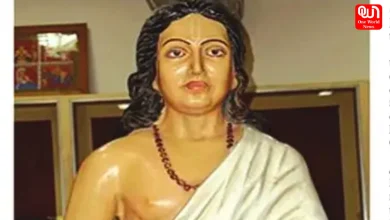Work in Progress: Education in India

India was slated to become the epicentre of the world by the year 2030 . But, right now the dream seems too farfetched. It is only ironical that a country which was once the pioneer in setting up the first university of the world is today facing the paradox of not being able to provide even basic education to all its citizens, (74.04% literacy rate according to –report in 2011). Increasing crime rate, unemployment, unorganised work sectors, over population and many more problems such as these are only the residual effects of lack in education amongst our youth.

The most effective way in which these problems can be tackled is education. Not the kind of education that we obtain in universities but the kind of education which prepares us to act like rational human beings, but then again what is rational and irrational has been beautifully explained by Plato in ‘The Republic’. Education has played a big part in the development of many civilisations. Be it the ancient Greek philosophy, Socrates with his paradoxes like ‘no one desires evil’ or the Stoics taught that destructive emotions resulted from errors in judgment, and that a sage, or person of ‘moral and intellectual perfection,’ would not suffer such emotions. Even the Indians with the most mind boggling philosophies in the epic Mahabharata. These pools of knowledge have fabricated a society, devised ideologies and built successful civilisations.
Before 1976, education was the exclusive responsibility of the States. The Constitutional Amendment of 1976, which included education in the concurrent list, was a big step towards educational reforms. The Indian government since has tried to uplift the standards of education in the country, bringing out several schemes such as Sarva Shiksha Abhayan, Kasturba Gandhi Balika Vidyalaya and the most recently the ‘Right To Education’ bill. These schemes have been successful sporadically and due to the size of our country not one scheme has emerged out to be a viable solution. The government needs to focus more on education than any another sector.

India has no excuse for where it is right now. It has all the resources, man power and philosophical foundations. The only problem it faces is with the education that pupils of this great country get, right from the bottom to the top. Primary educational institutes are in shambles. Infrastructure is deficient, teachers are hard to find and parents are not willing to send their children to schools. It is a ferocious cycle which has slowly destroyed the foundation our forefathers had built over centuries. India used to be the centre of higher education 1500 years ago with the Nalanda University admitting students from around the globe.
The dilemmas India is facing are several and one of them is over population. India is the forerunner in only a diminutive amount of things, which includes acute poverty, wide spread malnutrition in children, excessive corruption and extreme gender biasness. Only a few of us care to find the solution to the problems education can cater to all these needs. Why did India’s population increase by 1.46% from 2005-10 . According to the Economic Survey of India for 2011-12, India became the 4th largest economy, but in per capita increase it still ranks 123. The answer to these questions are not simple neither are they definite. In rural areas children are seen as an investment. Parents think that more the number of people in a family more the sources of incomes. There is no public awareness about family planning. The important thing that they do not realize is that they will have to bring them up as well and provide them with proper education along with a healthy living environment. This custom continues because they don’t have the resources to provide for their needs. The next generation ends up like their parents and the problem multiplies. They need to realize that education is of paramount importance without which everything else is futile.

The society’s way of thinking is another determinant which affects the growth of our country. And deficiency of basic education adds to this problem. We are still caught in the cobwebs of gender biasness, regionalism, discrimination on the basis of cast and religion. We identify each other as a Gujarati, a north/south Indian, a Baniya or a Muslim but not as Indians, there is no unity in our country and till we try to overcome these malpractices India cannot succeed. Serious issues such as gender discrimination, female foeticide, rapes are passed on as “hard news”. These things have become part of our lives and some of us have become immune to such conventions. Education will play a big part in eradicating these traditions and hence put India on the correct path.
Corruption is another evil which has been imbibed in our lifestyles. People with power in their hands take advantage of the uninformed ‘Janta’ of our country. Due to several bureaucratic bottlenecks work gets delayed and citizens are misled by government officials and end up giving bribes to get their work done.
The future of our country is in our hands and our hands only. We can either try to make India a better place or stay indifferent to its problems like we have in the past sixty-five years. As citizens of this country we have to become more responsible and more alert of our surroundings and try to make a change to our surroundings. India was and still is a great country; we just need to add some masala to the curry to make it taste better.
Photo Courtesy : Kiran Chopra, Editor-in-Chief, One World News. This is a small government school in Sadhupul, Himachal Pradesh striving hard to provide basic education to children in the hills.
Have a news story, an interesting write-up or simply a suggestion? Write to us at info@oneworldnews.in







